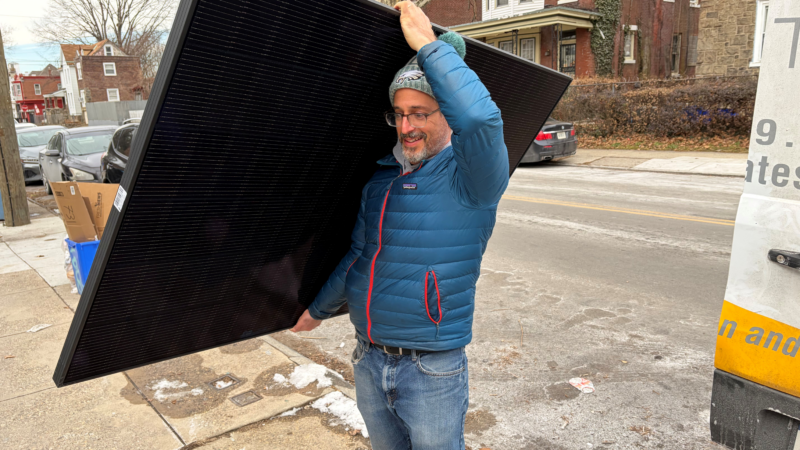How to avoid tax fraud: Staying vigilant this tax season
Tax season can be stressful enough, but imagine receiving a massive penalty for tax fraud – especially if you thought everything was in order. Unfortunately, it’s not uncommon.
“Tax preparation is a vulnerable situation for many Americans,” said special agent James Dorsey, who serves as head of the IRS Criminal Investigation Atlanta Field Office, which oversees Alabama, Georgia, Mississippi and Louisiana.

While most people are familiar with the civil side of the IRS, which focuses on taxpayer prep services and carries out audits, fewer know about the criminal investigation side of the IRS (IRS-CI). This law enforcement division investigates violations of US tax codes ranging from tax evasion to money laundering.
People may unknowingly violate a tax code if they’re not vigilant. So, how can you be vigilant and make sure this tax season goes smoothly?
According to Dorsey, there are three basic types of fraud to look out for.
1. Tax Preparation Fraud
Tax preparation fraud is unfortunate, but common Dorsey said.
“We have out there in the public, unscrupulous return preparers … individuals that knowingly and willfully assist clients and/or themselves to prepare false or fraudulent tax returns,” Dorsey said.
Tax preparation fraud happens when preparers make false claims on tax documents such as incorrect income figures, inflated personal or business expenses, false deductions, unallowable credits or excessive exemptions on returns prepared for their clients.
Last year, a tax preparer in Montgomery was sentenced to 37 months in prison. She filed multiple tax returns that resulted in a loss of over $20,000 to the IRS. In addition to her prison sentence, she was ordered to pay a fine and pay back the IRS which totaled $120,000.
2. Employer Tax Fraud
Dorsey said all employers are responsible for removing around 6.25% of an employee’s income as federal tax for things like Social Security and disability. Fraud occurs when employers withhold those funds, failing to submit them quarterly.
3. Scams
Throughout the pandemic, there’s been a rise in two types of scams: IRS impersonation scams and COVID-19 relief scams.
Dorsey explained that impersonation scams take place through email, social media and phone.
“Individuals will call and say, ‘Hey, you owe a back tax, and if we don’t get that paid in the next day or the next 24 hours, we’re going to come out and we’re going to arrest you. But you can pay it today by sending in a pre-loaded card,’” Dorsey said.
Along with COVID-19 relief fraud, the Paycheck Protection Program set up to assist employers in paying employees during the pandemic have been and continue to be used fraudulently.
What to watch out for to protect yourself:
When choosing a tax preparer, do your research.
Dorsey said there are some practices or signs to watch out for.
“If any preparer says, ‘Hey I can get you a bigger refund than the next guy,’ that should be a red flag,” Dorsey said.
Other red flags include a tax preparer saying that payment for services will vary on a sliding scale depending on the tax returns. Preparers should also never request blank forms with signatures already on them. That brings the potential for perjury.
Meanwhile, Dorsey said a tax preparer at a year-round establishment who is “willing to sit down with you and go line by line so that you fully understand what you’re signing” would be a better option.
Check in to prevent employer tax fraud.
If you’re concerned about if your employer has been allocating your income federal taxes, then connect with the civil side of the IRS. Through the taxpayer services that the IRS offers, a brief audit can occur to verify that income is being appropriately allocated. If there is fraud occurring, then the IRS-CI will get involved.
Scams are easier to get trapped in than you think.
Dorsey urged people, particularly those who are elderly, to be wary of phishing schemes, and note how the person purporting to be from the IRS contacts them.
“If you’re going to be contacted by the IRS, it will be a letter form via U.S. mail. We’re not going to send you an email. We’re not going to send you a social media post,” Dorsey said.
He added any initial letter will be non-forceful. Any emails, phone calls, or social media messages requesting personal information with the threat of a lawsuit or arrest are fraudulent.
The IRS never accepts payments in the form of pre-loaded cards. If you hear this suggested as a form of payment, you’re being scammed.
Watch out for people making claims that it’s possible to take part in COVID-19 relief programs. These programs are meant for businesses, not individuals.
Guard your personal information.
Personal information includes name, Social Security number, bank and credit card information and birth date. If you are contacted by someone claiming to be from the IRS, confirm with a local IRS office about the request before sharing any information.
Identity theft can happen at any time. If your personal information is being used by someone claiming to be you, reach out to the IRS. They will help secure your personal information and prevent financial mishaps.
Lack of transportation keeps many Alabamians from working. Rural public transit programs are trying to help
While lack of transportation is a major employment barrier in Alabama, few people take public transit to work. That dynamic is even more pronounced in rural areas.
When a horse whinnies, there’s more than meets the ear
A new study finds that horse whinnies are made of both a high and a low frequency, generated by different parts of the vocal tract. The two-tone sound may help horses convey more complex information.
Trump’s many tariff tools mean consumer prices won’t go down, analysts say
The Supreme Court struck down President Trump's signature tariffs. But the president has other tariff tools, and consumers shouldn't expect cheaper prices anytime soon, economists say.
Hundreds of American nurses choose Canada over the U.S. under Trump
More than 1,000 American nurses have successfully applied for licensure in British Columbia since April, a massive increase over prior years.
Tax credits for solar panels are available, but the catch is you can’t own them
Rooftop solar installers are steering customers toward leases instead of purchases. Federal tax credits for purchased systems have ended but are still available for leased ones.
5 takeaways from Trump’s State of the Union address
President Trump hit familiar notes on immigration and culture in his speech Tuesday night, but he largely underplayed the economic problems that voters say they are most concerned about.






